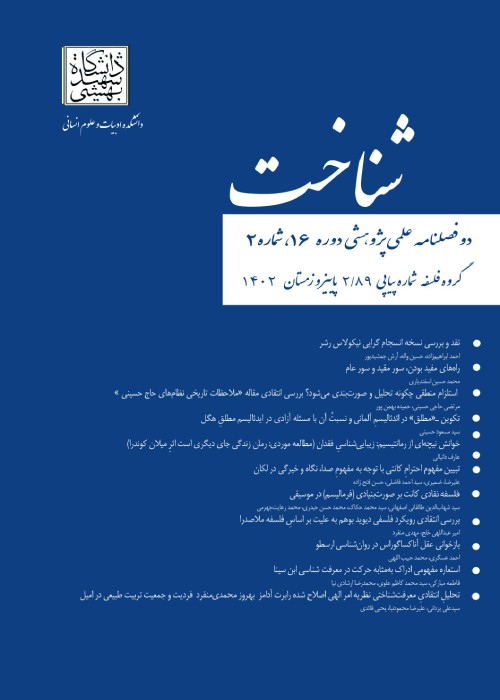Temporality, Individualism, and Alterity: Ethical Time in Levinas in Comparison with Egological Time in Bergson and Heidegger
The concept of time is integral to the discussion of Bergson and Heidegger. As Bergson observes, time is not a spatial quantity but an inner quality and it constitutes the "duration" comprising the modes of the individual's consciousness and confirms their change and variety. Similarly, Heidegger explores the origin of authentic time within Dasein's consciousness and attaches Dasein's originality and authenticity to the originality and authenticity of his "temporality". To Heidegger, Dasein's perception of his future and his death constitute the most significant elements of his "temporality". But the two philosopher's emphasis on the individuality of the origin of time jeopardizes the relation between authentic time and presence of the Other. To put another way, as Bergson and Heidegger both claim, the truth of time is merely obtained in solitude and the time experienced in Other's proximity is essentially spatial, public, and objective. Are we, therefore, to concede that ethics and the truth of time are essentially asynchronous? The present study pursues the philosophy of Emmanuel Levinas for an answer. To Levinas, understanding his philosophy of ethics depends upon understanding time in its authenticity and originality. Nevertheless, the understanding of time Levinas calls original fundamentally defies that of Bergson and Heidegger. As he maintains, time does not evolve in solitude but in relation with the Other. Attempting to observe the most crucial differences between Levinas' understanding of time and Bergson's and Heidegger's, and also trying to illuminate the ambiguities of the relation between temporality and alterity in Levinas' thought, the present research attempts to clarify how the latter's innovative attitude has shed a new light on the relation between time and otherness.
duration , temporality , otherness , same , other , individualism , ethics
- حق عضویت دریافتی صرف حمایت از نشریات عضو و نگهداری، تکمیل و توسعه مگیران میشود.
- پرداخت حق اشتراک و دانلود مقالات اجازه بازنشر آن در سایر رسانههای چاپی و دیجیتال را به کاربر نمیدهد.


